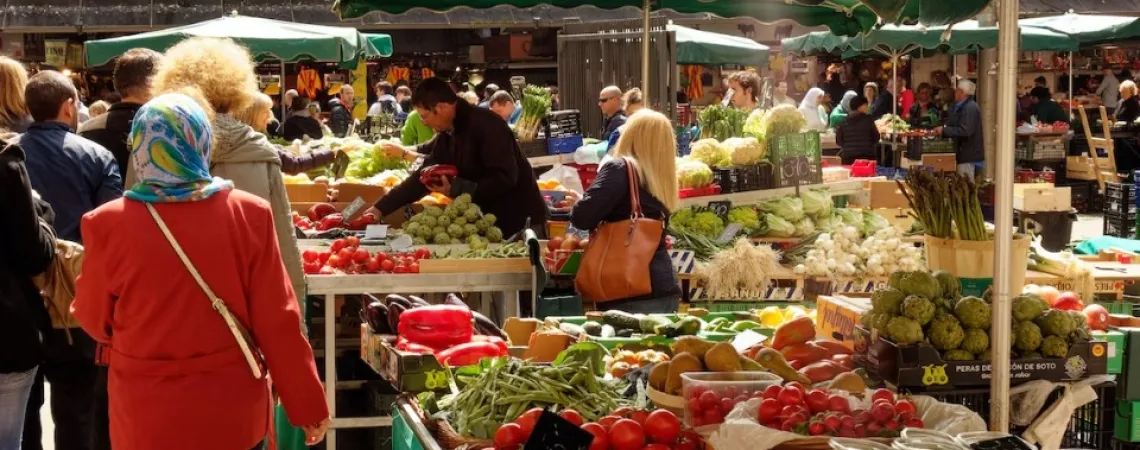
More and more people are concerned about climate change and the protection of the environment. If you are one of those people, here are some tips that will help you reduce your ecological footprint:
1. Eat Less Meat and Animal Products
In addition to having a positive impact on your health, the reduction in meat consumption allows a reduction in the emission of greenhouse gases. In fact, livestock farming is responsible for 10% of these emissions in Canada(1).
- Include more vegetarian options in your diet: whether it be chickpeas, kidney beans or lentils, legumes fit very well into several meals such as salads, soups, curries or chilis. Feel free to try new flavors!
- Reduce the size of your portions of meat: we often eat portions of meat far exceeding our needs. Remember that the recommended portion of Canada's Food Guide is 75g, which is the size of a deck of cards.
- Replace some of the meat in your meals with legumes: why not replace half of your chili ground meat with black beans or a portion of it in your spaghetti sauce with tofu? Other tips and tricks for integrating vegetarian food into your daily life are available in the article by our nutritionist Andréanne Fortin Dt.P.
2. Reduce Food Waste
Do you know that the consumer is responsible for 47% of food waste in Canada2? Here are some tips to help you reduce the amount of food that finds its way to the trash:
- Plan your meals and make a grocery list: this limits the purchase of food you do not need. As a bonus, you save!
- Go to the grocery store more often: this allows you to have fresh ingredients on hand.
- Freeze your surplus so you'll have a ready meal on hand or vegetables ready to cook.
- Use the leftovers in another meal: leftover pasta, chicken and various vegetables can make an excellent salad!
3. Reduce the Amount of Waste
Have you ever noticed how much food is packed in grocery stores? These packages, mainly composed of polystyrene foam and plastic, generate a significant amount of waste. To reduce your waste quantity:
- Bring your own grocery bags. Now it is also possible to buy reusable bags for fruits and vegetables in ecoboutiques or online.
- Opt for fruits and vegetables without packaging.
- Why not bring your own containers for shopping at the butcher's or fishmonger's? This practice is more and more common and many businesses accept them now.
4. Buy Local Products
In addition to encouraging our economy, buying local items limits the amount of gasoline used to transport food. Opt for seasonal fruits and vegetables and look for the "Aliment du Québec" logo.
5. Opt for Organic Foods
Integrating more organic foods encourages more environmentally friendly agriculture and livestock production while limiting the use of pesticides or synthetic fertilizers. Look for the logos of certified organizations such as Ecocert Canada, Quebec True, Trans-Canada Organic Certification Services (TCO Cert), Canada Organic or QuebecBio.
(1): Agriculture and Agri-Food Canada, Greenhouse Gases. http: //www.agr.gc.ca/fra/science-et-innovation/pratiques-agricoles/agric ... 2: "27 billion" Revised: The cost of canada's annual food waste. 2014. http: //vcm-international.com/wp-content/uploads/2014/12/Food-Waste-in-Ca





